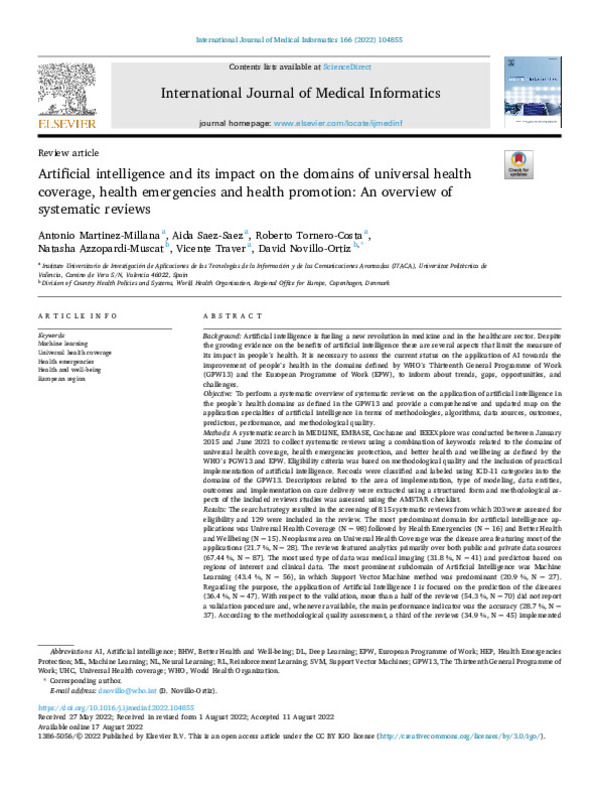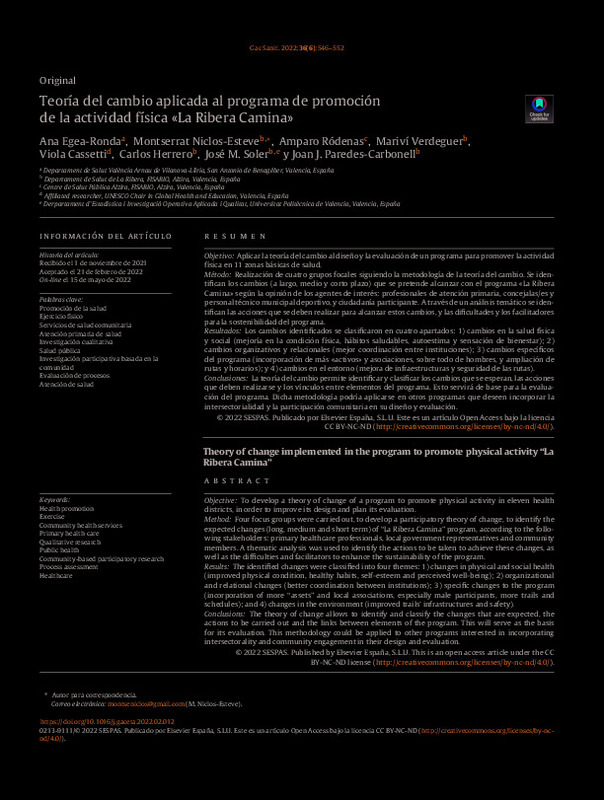JavaScript is disabled for your browser. Some features of this site may not work without it.
Buscar en RiuNet
Listar
Mi cuenta
Estadísticas
Ayuda RiuNet
Admin. UPV
Artificial intelligence and its impact on the domains of universal health coverage, health emergencies and health promotion: An overview of systematic reviews
Mostrar el registro completo del ítem
Martinez-Millana, A.; Saez-Saez, A.; Tornero-Costa, R.; Azzopardi-Muscat, N.; Traver Salcedo, V.; Novillo-Ortiz, D. (2022). Artificial intelligence and its impact on the domains of universal health coverage, health emergencies and health promotion: An overview of systematic reviews. International Journal of Medical Informatics. 166:1-12. https://doi.org/10.1016/j.ijmedinf.2022.104855
Por favor, use este identificador para citar o enlazar este ítem: http://hdl.handle.net/10251/198255
Ficheros en el ítem
Metadatos del ítem
| Título: | Artificial intelligence and its impact on the domains of universal health coverage, health emergencies and health promotion: An overview of systematic reviews | |
| Autor: | Saez-Saez, Aida Azzopardi-Muscat, Natasha Novillo-Ortiz, David | |
| Entidad UPV: |
|
|
| Fecha difusión: |
|
|
| Resumen: |
[EN] Background: Artificial intelligence is fueling a new revolution in medicine and in the healthcare sector. Despite the growing evidence on the benefits of artificial intelligence there are several aspects that limit ...[+]
|
|
| Palabras clave: |
|
|
| Derechos de uso: | Reconocimiento (by) | |
| Fuente: |
|
|
| DOI: |
|
|
| Editorial: |
|
|
| Versión del editor: | https://doi.org/10.1016/j.ijmedinf.2022.104855 | |
| Tipo: |
|












